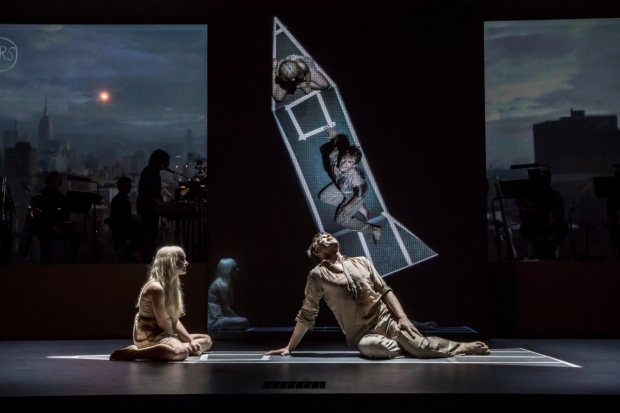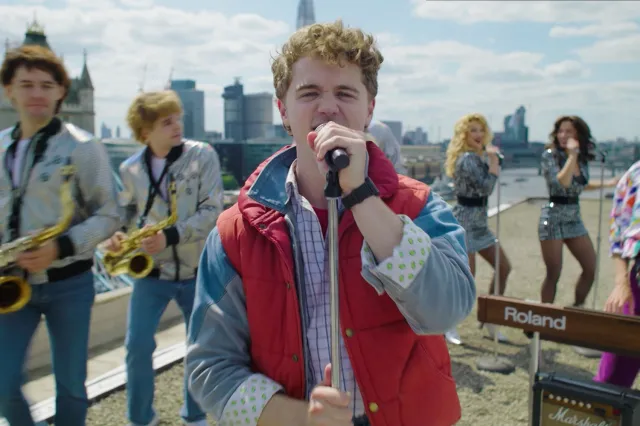Review: David Bowie and Enda Walsh's Lazarus (online stream)
The show was recorded during its UK run

© Johan Persson
I have long been of the view that the world started to tilt off its axis on the day David Bowie died, on January 10 five years ago. Nothing has ever seemed quite the same without the man who guided so many of us through the many changes of our world and his consistently inventive and thrilling musical career. He provided not only the soundtrack to our lives, but an inspiration of inquiry by which to live it.
So the on-screen arrival of a filmed version of the musical Lazarus, his last creative project, which premiered in New York weeks before his death at the age of 69, and in London in November 2016, feels like a good way to mark what would have been his 74th birthday. It's available on dice.fm until Sunday.
Filmed initially for archive purposes only, under the direction of Nick Morris, it now emerges in a sleekly powerful creation, subtly different in impact from the stage production and much more than a simple record of Ivo van Hove's stylish direction. No one could claim that this continuation of the story of Thomas Newton, originally played by Bowie in Nicolas Roeg's The Man Who Fell to Earth, is a masterpiece. In the hands of Enda Walsh, who wrote it with Bowie, it's bafflingly bonkers, with a hole where its narrative arc should be. But it is, to me, strangely compelling.
What I loved about the stage show (to which I gave four stars) was its wild and whirring energy. That's depleted, naturally, with the intrusion of cameras. What remains though is more coherent than I originally appreciated. Or perhaps it is just that the story of a man trapped both in his own head and in a single room has gained more impact with the arrival of a world lockdown which keeps all of us in a broadly similar place.
When we first meet Newton he is slumped in despair, watching television and drinking gin. (Sound familiar?) In what is presumably a journey inside his fractured mind, he is surrounded by images of horror and of loss, yet finally discovers a kind of hope, a way of making sense of the violence and misery that both fill his fantasies and also represent the truth of the world in which he is trapped.
Bowie's songs, wrenched into new places and different meanings, provide the soundtrack and they are memorably played by the onstage band, led by pianist and musical director Tom Cawley, and strongly sung by the cast including Michael C Hall (of Dexter fame) as Newton, Amy Lennox as his home help who undergoes a personality change, and Sophia Anne Caruso as a sort of ghost with the mousy hair who comes to save him. Best of all is Michael Esper as a deranged serial killer who not only gets to belt a chilling version of "Valentine's Day" but also "Dirty Boys" with its great, blasting horns.
The real star on film, however, is Jan Versweyveld's set which, filled with Tal Yarden's video projections, becomes an ever-changing paint box for Newton's visions, from the glistening lights of New York, to memories of Berlin, to the blood-seeped aftermath of Valentine's killing sprees. The script is its weak spot, never quite rising to the profundity it seeks. But watching it again, I am struck more than ever by the way the show parallels confinement and escape, despair and hope, and in the end leaps for the better options. Newton escapes when he finds humanity and unselfish love.
It seems entirely fitting that Bowie, a man who was never afraid to try something new, left as his last legacy a project that doesn't absolutely work but which speaks even more strongly now than it did when he made it, and asks us to find our better angels as we search for a way forwards.












